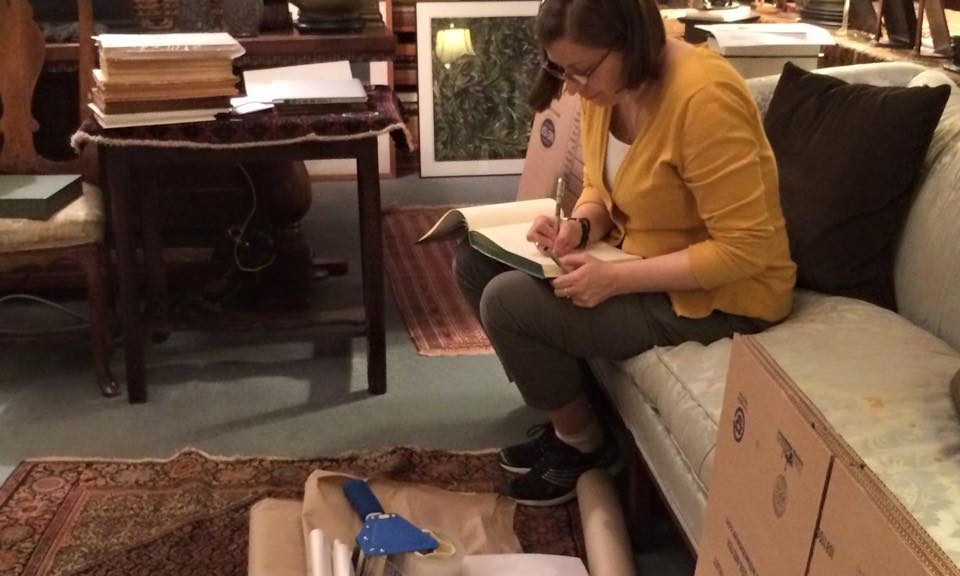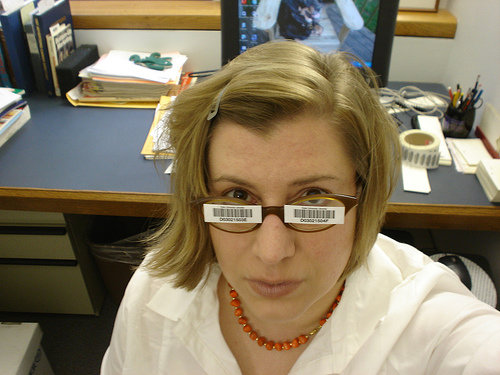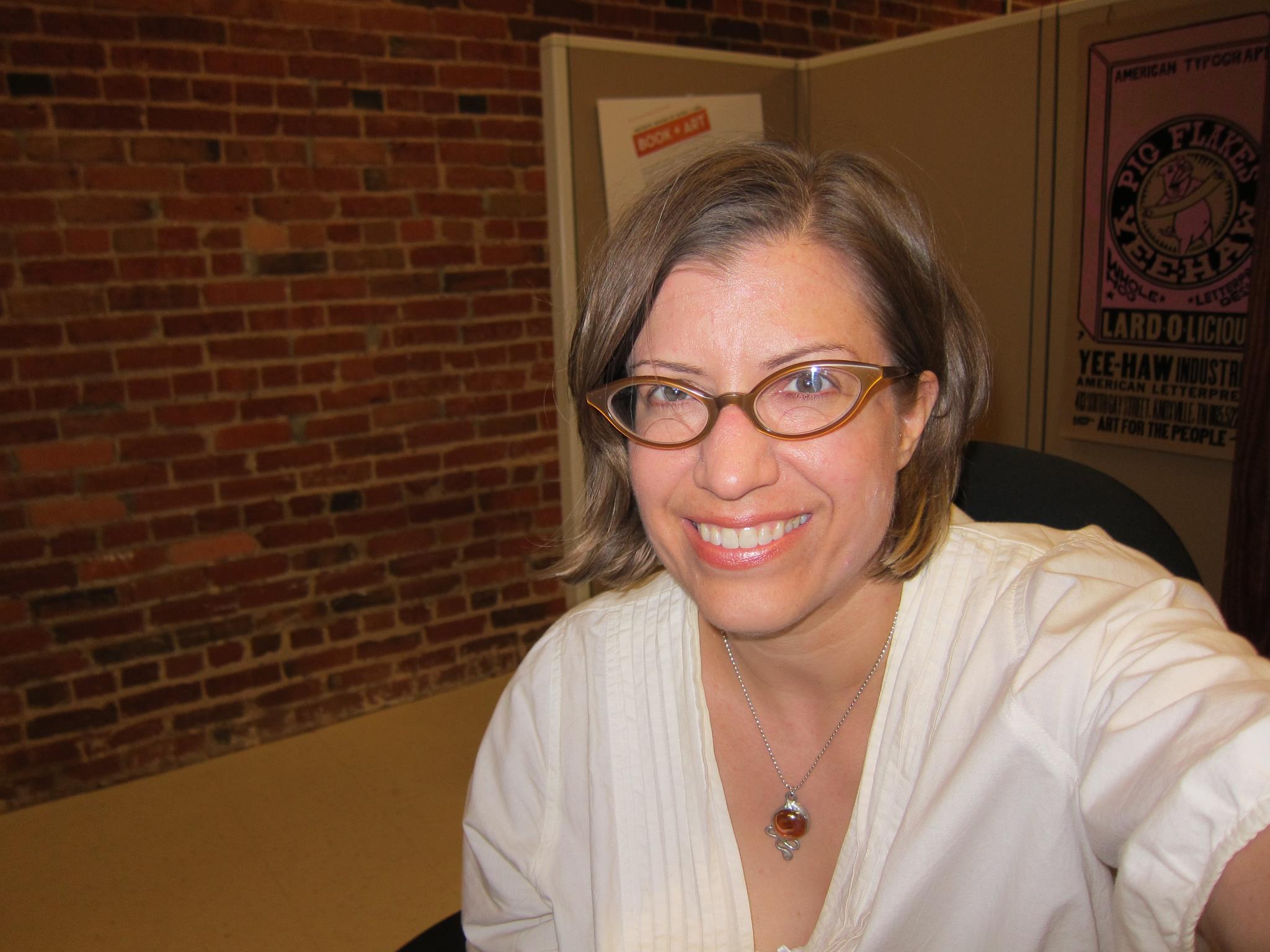Megan Lewis joined the Rubenstein staff in 2002 as a rare book cataloger. In 2009, she became the Technical Services Archivist for the Sallie Bingham Center for Women’s History and Culture.
Tell us about your academic background and interests.
My B.A. is in English, so I’m particularly interested in our literature collections. It’s fascinating to make connections between the materiality of what we collect with the published product. I’m also interested in popular culture. Show me your popular culture, and I’ll show you who you are. Since I started working at the Bingham Center, I’ve become interested in the ways we as archivists can serve various activist communities by documenting their work.
What led you to working in libraries? How did you know you wanted to be an archivist?
I was genetically destined to work in libraries, since my mom was a librarian and I loved to shadow her at work when I was a kid. After working at my college library as an undergrad, I was lucky to get my first job in special collections at the Library Company of Philadelphia. Once I started learning about rare books there, there was no turning back.
I never actually planned to become an archivist, but fell into it at Duke after working as a rare book cataloger. A position opened at the Bingham Center, and I applied for it. I’d first heard about the Bingham Center when its director visited my class in library school. She gave an inspiring talk about how the Bingham Center “saves women’s lives,” and as a lifelong feminist, I thought it would be a dream job to work there. I was right.
What are the main projects you work on at the Rubenstein and Bingham Center?
I process and catalog manuscript collections. That means that I arrange them in a coherent fashion and create collection guides, as well as a catalog record, so people can find what we have. I’ve worked almost exclusively with large modern collections, but lately I’ve also been cataloging small, older manuscripts from the Lisa Unger Baskin Collection. As a Bingham Center staff member, I also participate in events, outreach, and donor relations.
How do you describe what you do to people you meet at a party? To fellow librarians and library staff?
I tell laypeople that I’m a women’s history archivist. Usually, they say “cool!” and that’s it, but sometimes they want to know details.
To fellow library folks, I say that I’m a technical services archivist at the Rubenstein, because that gives them an idea of where I fit into Duke Libraries’ organizational structure.
What does an average day look like for you?
On an average day, I might check in with my library school intern and my undergraduate student assistant. I’m lucky to have an intern who also processes collections. My student assistant helps me rebox and folder incoming new materials, and creates boxlists that are part of the collection guide. Much of my job entails moving materials along so we don’t get backed up. Right now my shelves are almost full, which means that it’s time to send as many boxes as possible to our Library Service Center. I also meet weekly with my Bingham Center cohorts so we can discuss our work with each other.
What do you like best about your job? What excites you most?
I love that I get to help document women’s history. It’s a privilege to work with our donors, many of whom are tremendously accomplished women whose work has changed the world for the better in palpable ways.
I get excited when I see young women, who might not consider themselves feminists, use our collections and be able to connect their present-day struggles with the work done by activists who came before them.
What might people find surprising about your job?
It’s not always quiet, and it’s not without stress. When I tell people I work in a library, they often say, “Oh, that must be nice and quiet and calm.”
What is the most challenging aspect of your job?
Trying to keep up with new acquisitions and increase our processing capacity. Some donors like to send us things on a frequent basis, which has a mushroom effect. Sometimes I feel like the Sorcerer’s Apprentice trying to beat back the water.
Do you have a favorite piece or collection at The Rubenstein? Why?
Right now, I’d have to say the Lisa Unger Baskin Collection, which has been transformative for the Rubenstein. It’s an amazingly rich and deep collection based around the theme of working women. Each small manuscript collection I catalog is a mini history lesson.
Where can you be found when you’re not working?
Walking my dog and consuming culture in and around Durham.
What book is on your nightstand/in your carryall right now?
Leslie Feinberg’s Stone Butch Blues (1993). Leslie was a transgender activist ahead of her time, and was also the partner of writer/activist Minnie Bruce Pratt, whose papers are held by the Bingham Center.




